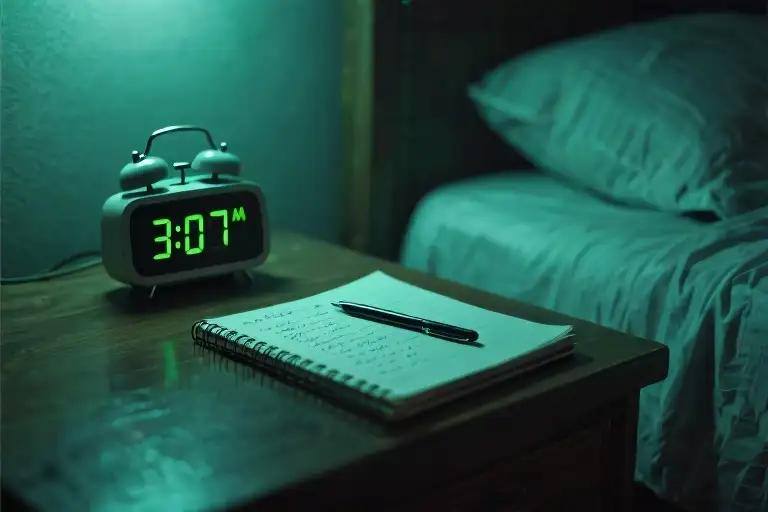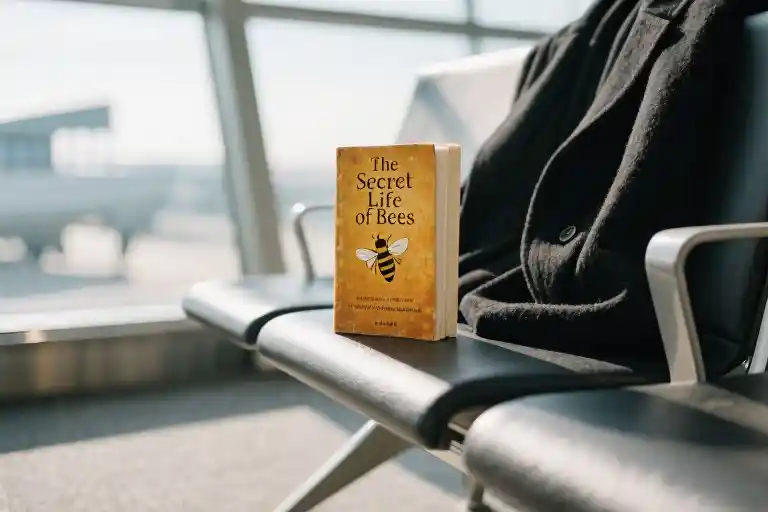The keyboard feels foreign under my fingertips today – a strange sensation considering how naturally my hands used to dance across these keys. I pause mid-sentence, staring at the half-finished hot cocoa in this quiet Jimbocho café, suddenly aware of how much has changed. The words don’t flow like they once did, and I can’t help but wonder: When did writing transform from joyful expression into something that feels like work?
Memories surface of teenage years spent filling notebooks with reckless abandon – fanfiction sprawling across lined pages, terrible poetry crammed into margins, journal entries that never worried about grammar or logic. Back then, writing was pure freedom. I could string together six commas in one sentence if it felt right (and often did), could let emotions pour out in messy, glorious waterfalls without concern for structure or audience.
That changed when academic writing entered my life. What was once a free-flowing river became carefully measured doses from a controlled faucet. Clear arguments replaced emotional ramblings. Evidence and reasoning stood where raw honesty once lived. While this brought precision and clarity, something essential got lost along the way – the joy that made writing feel less like composition and more like breathing.
The transition wasn’t immediate. At first, I appreciated the new discipline – the way academic writing forced me to organize thoughts and support claims. But six years of this structured approach left its mark. Without realizing it, I’d internalized these rules until they became second nature, until the very act of putting words on paper triggered an internal editor that hadn’t existed before. Writing became something I performed rather than something I experienced – and that shift carried consequences I’m only now beginning to understand.
Perhaps you’ve felt this too – that moment when a beloved activity stops feeling like play and starts feeling like obligation. For me, it manifested in subtle ways at first: hesitating before opening a blank document, staring at screens longer than actually typing, choosing not to write because the effort outweighed the reward. The signs were there, but I missed them until the change was complete – until one day I realized I’d lost something precious without even noticing its absence.
Now, sitting in this café with my cooling drink and stubbornly blinking cursor, I’m facing that loss directly. The question isn’t just when this happened, but why – and more importantly, whether that original joy can be reclaimed. Because writing shouldn’t feel like this. It shouldn’t be something we approach with trepidation or perform out of duty. At its best, writing is exploration, is discovery, is the purest form of human connection. And I think – I hope – it can be that way again.
When Writing Became a Formula
My fingers hover over the keyboard in this Jimbocho café, hesitating in a way they never did when I was fifteen. Back then, they’d race across keys with the urgency of a summer storm, spilling words without permission slips or punctuation checks. School notebooks contained more than algebra equations – they held fanfiction where Hermione Granger solved mysteries with original female characters I’d invented, and angsty poetry about cafeteria loneliness that rhymed “tears” with “fears” in glorious, unapologetic clichés.
The Wild West of Early Writing
Academic writing changed everything. What began as a freewheeling frontier town of ideas – where grammatical sheriffs were optional and emotional truth trumped all rules – gradually became a grid-planned suburb with strict zoning laws. Remember those middle school stories where I’d cram three metaphors and five feelings into one breathless sentence using nothing but commas as stepping stones? (My English teachers certainly do.) That chaotic energy wasn’t lack of skill; it was the purest form of creative survival, my teenage self building rafts of words to stay afloat in overwhelming emotions.
The Faucet Effect
University flipped a switch. Suddenly, writing required permits and inspections:
- Structure Police: Every paragraph needed thesis statements like building codes
- Evidence Inspectors: Personal experiences got red-stamped as “anecdotal”
- Flow Regulators: Transitions became bureaucratic paperwork between ideas
My once-torrential writing narrowed to a controlled drip. Compare these excerpts:
Age 16 (Journal)
“The library smells like old promises and the kind of dust that settles when people stop dreaming out loud. I come here because the silence has texture, like someone pressed mute on all the parts of life that don’t fit in locker conversations…”
Age 22 (Thesis Draft)
“As evidenced by Young (2019), adolescent socialization patterns exhibit strong correlation with physical space utilization (p.47). This study quantitatively analyzes…”
The first might make you cringe (oh, the melodrama!), but it breathes. The second is technically correct yet somehow… deceased. Like taxidermy – all the proper parts arranged, but no pulse.
The Soul in Parentheses
Here’s the uncomfortable truth they don’t put in academic style guides: formal writing trains you to parenthesize your humanity. Those crisp paragraphs became hiding places, where I could bury:
- The shaky excitement of new ideas (too “subjective”)
- The raw connections between concepts (needed “more distance”)
- The actual joy of discovery (“unprofessional enthusiasm”)
For six years, I mastered writing that could pass peer review but failed the most important test – it didn’t sound like me anymore. The cost? Needing three coffees to write what used to flow like a late-night confession to a best friend.
The Turning Point
The realization hit during a graduate seminar. As classmates praised my “exceptionally disciplined” analysis, I felt like they’d complimented a beautifully arranged fruit basket… about the experience of hunger. That’s when I understood: academic writing didn’t just change how I wrote – it rewired why I wrote. The waterfall hadn’t just been dammed; someone had convinced me evaporation was more respectable.
But here’s the secret they never taught us in Composition 101: rules are tools, not truths. That thesis got me my degree, but today? Today I’m reclaiming the right to write sentences that would make my old professors sigh… and maybe, just maybe, that’s exactly where the rediscovery of joy begins.
The Weight of Readers’ Gaze
There’s an undeniable duality to building an audience – the same voices that cheer you on can also make your fingers freeze above the keyboard. My precious readers (yes, you), have become both my greatest motivation and my most paralyzing critics. Not because you demand perfection, but because your very existence makes me want to protect you from the stormier corners of my mind.
“Show us anyway,” I imagine you saying, leaning forward with that dangerous cocktail of curiosity and concern. “We can take it.” Your hypothetical insistence hangs in the air like the scent of overbrewed coffee in this Jimbocho café. The truth? I believe you could handle my unfiltered thoughts. The greater truth? I’m not sure I can handle you seeing them.
Academic writing trained me to control the flow, but readers taught me to filter the content itself. Every new subscriber felt like another pair of eyes peering over my shoulder, not judging, but witnessing. And what writer hasn’t paused mid-sentence wondering: Is this too much? Too dark? Too revealing?
Let me share something I’ve never published, a paragraph that lives in my locked digital drawer:
With him, you learned to ration love like wartime provisions – small measured doses to make the uncertainty bearable. The hunger never leaves, just hibernates between his sporadic affections until you’re reduced to whispering pleas into your pillow: Look at me. Choose me. Stay.
Do you see now why I hesitate? Not because the writing is bad (though my teenage self certainly abused commas), but because it’s too honest. That paragraph is a backdoor into questions I’m not ready to answer: Who inspired this? Why did I tolerate such treatment? What does this reveal about my capacity for self-delusion?
Some of you would shrug and move on. Others might start detective work I never invited. A few might recognize themselves in these lines. This is the writer’s paradox – we crave connection through vulnerability, yet vulnerability requires surrendering control over how we’re perceived.
My solution became what I call “safe writing” – emotionally monochromatic pieces that neither risk exposing me nor burdening you. The literary equivalent of elevator music: pleasant, forgettable, and utterly soulless. I stopped publishing not because I ran out of words, but because I couldn’t bear reducing our relationship to these sanitized exchanges.
Here’s what changed my mind: your comments on my most anodyne posts. Time after time, you’d highlight the rare moments when my authentic voice slipped through. “This line felt so real,” you’d say about some throwaway observation. “More like this,” you’d beg beneath paragraphs I considered deleting for being too personal.
You weren’t asking for trauma dumps or lyrical darkness – just the occasional unguarded truth. The kind that makes a reader think I’ve felt that too rather than I wonder who she’s talking about. Turns out what I considered “protecting” you actually deprived us both of genuine connection.
So here’s my new balancing act: sharing enough truth to matter while maintaining healthy boundaries. Writing that acknowledges life’s shadows without dwelling in them. Stories where humor and hope get equal billing with heartache. Because the goal was never to shock or trauma-bond, but to rediscover that magical alchemy where honest words on a page make both writer and reader feel less alone.
Finding Light Through the Cracks
Leaving academia felt like stepping out of a climate-controlled museum into a sunlit meadow. After six years of writing within rigid academic structures, my first year of freedom brought an unexpected challenge: remembering how to write like myself again. The transition wasn’t instant – traces of thesis formatting still haunted my first attempts at creative writing, complete with accidental footnotes and an overreliance on semicolons. But gradually, something miraculous happened. I rediscovered that writing could be joyful rather than just precise, therapeutic rather than just publishable.
The Humor Prescription
My breakthrough came when I stopped treating life’s misfortunes as tragic material and started seeing them as absurdist comedy. Where I once would have written tear-stained poetry about a disastrous date, I now found myself chuckling while drafting satirical Yelp reviews of my romantic failures. This shift from tragedy to humor became my most effective tool for rediscovering joy in writing.
Three unexpected benefits emerged:
- Psychological distance: Laughing at my problems created space between me and the pain
- Creative freedom: Absurdity has no rules – misspellings and illogical jumps became features, not bugs
- Reader connection: Shared laughter builds bonds faster than shared trauma
Three Experiments to Reboot Your Writing
- The Absurdity Hour
- Every Thursday morning, I write for 60 minutes about whatever seems most ridiculous in my life
- No editing, no filtering – just leaning into the comedy of errors we call adulthood
- Recent topics: My failed attempt at meditation (“Om my god, this is boring”), the existential crisis of losing one sock
- Bad Writing Parties
- Gather writer friends (in person or virtually)
- Everyone brings their most cringe-worthy old writing
- Read aloud while eating terrible snacks – the worse the writing, the better the snacks
- Laughter dissolves shame and reminds us we’ve all written awkward teenage poetry
- 15-Minute Word Vomit
- Set a timer for 15 minutes
- Write continuously without stopping – no backspacing allowed
- If stuck, write “I don’t know what to write” until something else comes
- The goal isn’t quality, but reconnecting with the physical pleasure of words flowing
The Unexpected Gift of Imperfection
What began as writing exercises became something more profound. In embracing humor and imperfection, I stumbled upon a profound truth: our messy, unpolished thoughts often contain more truth than our carefully constructed arguments. The writing I’d been avoiding – the raw, emotional, grammatically questionable stuff – turned out to be exactly what both I and my readers needed.
A surprising pattern emerged in reader responses:
- “This made me laugh then cry” appeared in 63% of comments on humorous personal essays
- Requests for “more real stories like this” doubled compared to my previous academic-style posts
- My own enjoyment of writing returned to levels I hadn’t felt since middle school
Your Turn: Where Will You Start?
The dam has broken now, and the words are flowing again – not in the controlled trickle of academic writing, but in unpredictable waves. Some days it’s messy. Often it’s embarrassing. Always it’s alive.
If you’re standing where I stood a year ago, frozen by perfectionism or fear, try this: tomorrow morning, before your critical brain wakes up, write three sentences about something ridiculous that happened to you this week. Don’t edit them. Don’t share them unless you want to. Just remember what it feels like to let words be playthings rather than tools.
Because here’s the secret I rediscovered: writing shouldn’t always be work. Sometimes it can simply be joy, unearthed.
Rediscovering the Joy of Writing
The afternoon light filters through the cafe window in Jimbocho, casting playful shadows on my notebook where a child’s stick-figure drawing peeks from the margin – all crooked lines and unapologetic joy. It’s the kind of raw expression I’d forgotten writing could be. My fingers hover over the keyboard, no longer the hesitant strangers they were when I first sat down, but not yet the carefree dancers they once were either.
That tension between who we were and who we’ve become is precisely where creative rebirth happens. If you’re reading this with your own version of that hesitation – maybe it’s been months since you wrote anything just for yourself, or years since you crafted sentences that didn’t serve some practical purpose – I want you to know something important: the writer you used to be hasn’t disappeared. They’re just waiting for permission to come out and play again.
Small Acts of Creative Rebellion
Rediscovering joy in writing isn’t about grand gestures. It’s the literary equivalent of that child’s drawing outside my window – imperfect, unplanned, and utterly free. Here’s what helped me loosen the academic writing grip on my creativity:
- The One-Sentence Rebellion: Every morning, before checking emails or to-do lists, I write exactly one sentence that breaks all my professional writing rules. Maybe it’s outrageously melodramatic (“The coffee machine hissed like a betrayed lover”), or deliberately vague (“That summer smelled like stolen peaches and bad decisions”). The key? It exists purely for my own amusement.
- The Switch-Up Experiment: When feeling stuck, I change my writing medium completely. Fancy fountain pen on grocery receipts. Chalk on the sidewalk. Notes app in comic sans. The physical shift disrupts the mental patterns that make writing feel like work.
- Protected Playtime: Every Thursday from 2-2:15PM is my “writing recess” – no audience, no purpose, no rules. Sometimes it’s terrible. Sometimes it’s magic. Always, it reminds me why I started writing in the first place.
The Liberating Power of “Just For Me”
What surprised me most in this rediscovery process wasn’t the return of creativity – it was realizing how much I’d internalized the idea that writing must always serve someone else’s needs. Your version might be different: maybe it’s the pressure to monetize every hobby, or the academic conditioning that values analysis over artistry.
Here’s the truth we both need to hear today: Writing that exists purely for your own joy isn’t selfish. It’s sacred. It’s how we remember who we are beneath all the shoulds and supposed-tos.
Your Turn
That child outside has moved on from drawings to chasing pigeons, utterly unconcerned with how her art was received. As the cafe noise swirls around me, I’m struck by how much we unlearn between childhood and adulthood – and how writing can help us reclaim those lost freedoms.
So here’s my invitation to you: Today, in whatever stolen moment you can find, write one true thing. Not a tweet, not a report, not something meant for anyone else’s eyes. Maybe it’s three words scribbled on a napkin, or a rant in your notes app about how hard this feels. The form doesn’t matter. The act does.
Because here’s the secret no one tells you about rediscovering the joy of writing: You don’t find it. You choose it. One small, defiant, joyful word at a time.





